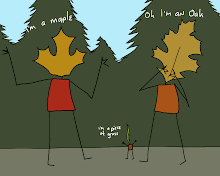After giving some history to B-boying, Schloss discussed the canon of it, and the high importance of the canon. B-boying's canon consists of old school songs such as "Apache," "Just Begun,"and "The Mexican," all songs that to what Schloss discovered, almost every B-boy and B-girl knows. The canon serves as important gateway between the past and the present. It keeps people in touch with the roots of the activity, and by following these songs, and knowing them by heart, it gives a great deal of respect for the originators of the activity. Since these are songs that are often played a great deal, knowing them is in every B-boy and B-girl's best interest because when they come on, it can be the perfect time to show off your best moves. This canon also serves as a bridge between the DJ and the breakers. By having these songs in their repertoire, DJs can bust them out, and let people start breaking, and from this they can gain more respect in the B-boy world. The canon also serves to create a sense of community. Since virtual all B-boys know, or should know the canon, it's something that everyone who participates in the culture shares. This shared sense of what the best songs to break to creates the community of B-boying. The canon brings the B-boy culture together and enables it to live on throughout the decades after its creation.
Question: If it weren't for the B-boy canon, would there still be able to be the shared sense of a community between the culture's participants?

No comments:
Post a Comment